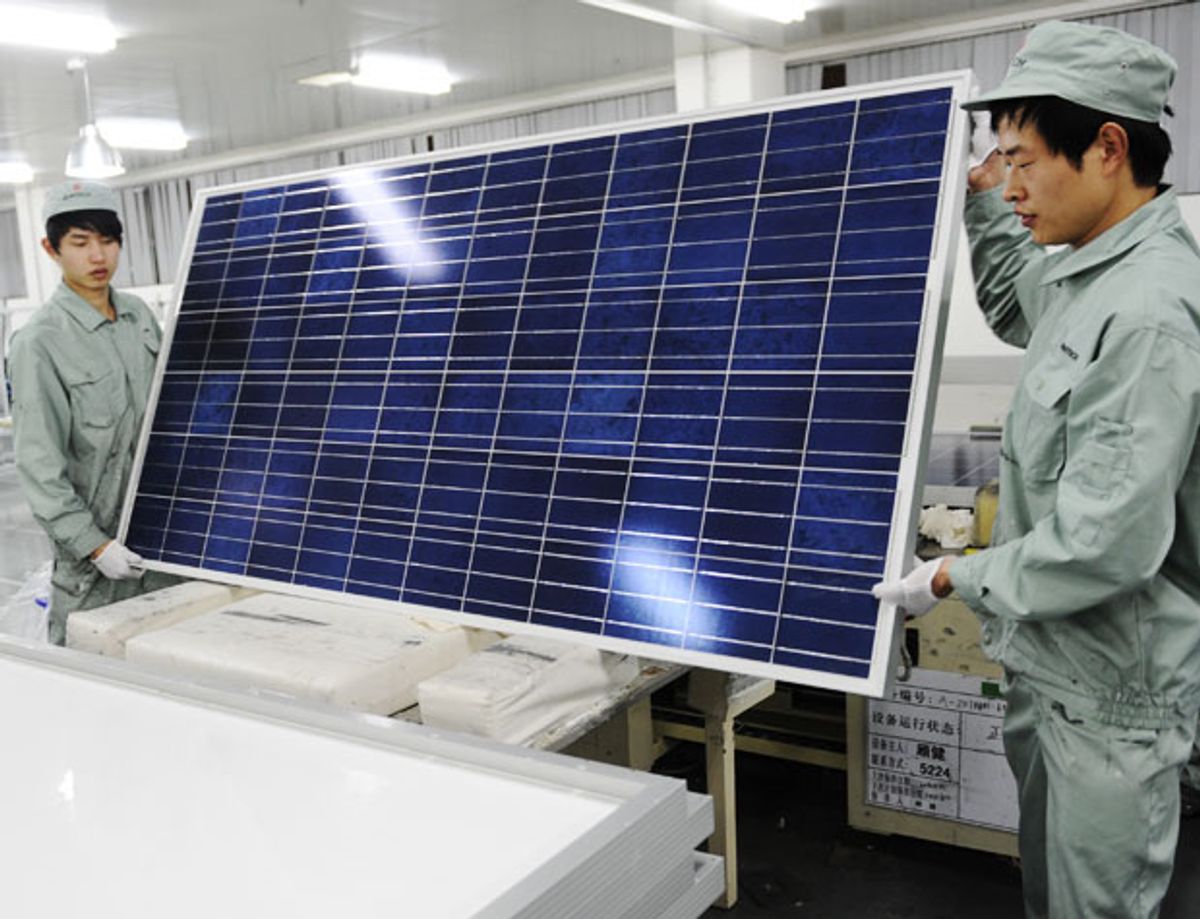Predictably, the Suntech collapse has undammed a flood of instant commentary, some of it somewhat self-contradictory.
There are those who argue that the Suntech bankruptcy and others soon to follow will relieve a glut in the global photovoltaics market, leading to supply being more in line with demand and prices stabilizing at a somewhat higher level, giving a badly needed incentive to innovators. And then there are those—sometimes the same those—who say the shakeout will be brutal indeed, with no end in sight.
Whatever the situation, though it may now be a necessary one, it is hardly the best of all possible worlds.
Taking a relatively optimistic line, the Financial Times's prestigious "Lex" team asserts that "the end of the [solar] misery is almost in sight. Crippled balance sheets have brought growth in capacity to a halt. And demand is recovering. China’s Golden Sun solar subsidy scheme will double installed solar power capacity in the country to 10 gigawatts this year." Warren Buffett is investing in solar in the United States, and profitability could return to the industry "as early as" next year.
Yet just two days before a Beijing correspondent for the paper reported that "Chinese solar-panel makers are set to follow the lead of Suntech as the solar industry enters a difficult period of consolidation and "adjustment.' " The clear implications were that a lot of PV makers will go down the tubes too, and that is won't be any easy adjustment.
Earth2Tech's Katie Fehrenbacher, like Lex, declared the Suntech bankruptcy "a good thing." But she went on to cite a Technology Review estimate that "hundreds of solar companies need to fail"; as many as 180 PV panel manufacturers may go under by 2015, she said.
One of the more drastic estimates of the global situation comes from Keith Bradsher of The New York Times: "The industry’s problem is that most of the cost of a solar panel lies in building the factory, not in operating the equipment. So when the industry has severe overcapacity, as it does now, each company continues running its factories to cover its tiny operating costs, and at least a small part of the interest on the loans it took out to buy the costly factory equipment. But when every company pursues that strategy, the whole industry loses money and virtually no business is able to cover its full interest costs."
Maybe the most balanced assessment was in the Wall Street Journal's "Heard on the Street": Chinese companies like LDK Solar, with balance sheets known to be weak, will go under too; stronger companies like Trina Solar and Yingli Green Energy will prosper.
photo: Peter Parks/AFP/Getty Images



